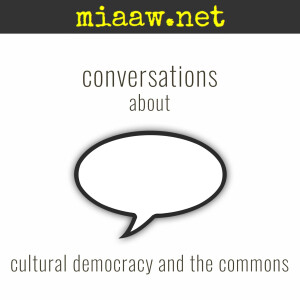
In 2015 Thames & Hudson published a book called “Thinking Big: how the evolution of social life shaped the human mind”. The book had three authors: Robin Dunbar, head of the Social and Evolutionary Neuroscience Research Group at the University of Oxford; Clive Gamble, Professor of Archaeology at the University of Southampton; and John Gowlett, Professor of Archaeology at Liverpool University.
The book developed out of a seven year research study called “Lucy to Language: The Archaeology of the Social Brain” and argues in favour of the social mind hypothesis. Simply put this states that “a link has always existed between our brains, or more precisely the size of our brains, and the size of our basic social units. We see this link as essential to understanding our evolution as a single, global species that can live in cities the size of Rio de Janeiro, drawing daily on vast amounts of information to manage our lives”.
In this episode of A Genuine Inquiry Owen Kelly asks what relevance the social mind hypothesis has for those interested in developing a coherent theory of cultural democracy.
More Episodes
 2024-11-01
2024-11-01
 2024-10-25
2024-10-25
 2024-10-18
2024-10-18
 2024-10-11
2024-10-11
 2024-10-04
2024-10-04
 2024-09-27
2024-09-27
 2024-09-20
2024-09-20
 2024-09-13
2024-09-13
 2024-09-06
2024-09-06
 2024-08-30
2024-08-30
 2024-08-23
2024-08-23
 2024-08-16
2024-08-16
 2024-08-02
2024-08-02
 2024-07-19
2024-07-19
 2024-07-12
2024-07-12
 2024-07-05
2024-07-05
 2024-06-28
2024-06-28
 2024-06-21
2024-06-21
Create your
podcast in
minutes
- Full-featured podcast site
- Unlimited storage and bandwidth
- Comprehensive podcast stats
- Distribute to Apple Podcasts, Spotify, and more
- Make money with your podcast
It is Free
- Privacy Policy
- Cookie Policy
- Terms of Use
- Consent Preferences
- Copyright © 2015-2024 Podbean.com






